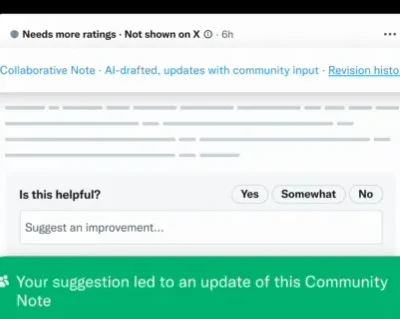The second episode of Tracker’s third season, titled “Leverage,” wastes no time diving back into the unnerving conspiracy introduced in the season premiere. The episode picks up right where we left off, tightening its grip on viewers with the growing mystery of “The Process,” a twisted system of coercion that turns ordinary people into instruments of violence and manipulation. It’s a dense, unsettling follow-up that continues to expand the show’s mythology while deepening the emotional threads between Colter, his brother Russell, and the rest of his ragtag gang.
From the opening scene, the episode sets a tone of panic and dread. A tearful man named Harith Holmes drives in the dark, visibly shaken as he receives texts from an anonymous number asking if “the task” is complete. His horror intensifies when we realize he’s not a random victim, but another cog in The Process. He is a puppet forced to commit murder to protect his family. The scene immediately establishes the stakes: The Process is everywhere, it knows everything, and it uses guilt as its leash. When Harith confesses to his wife that he was the one who killed Raymond’s sister, the emotional weight lands hard. The desperation of these “everyday monsters” is the most chilling part of the storyline. They aren’t evil, they’re trapped.
Meanwhile, Colter and Russell (Jensen Ackles) are back in the field, this time joined more directly by Reenie and tech expert Randy. Their teamwork feels more cohesive this week, and it’s refreshing to see them all interacting rather than working in isolation. The group suspects that Raymond, the teacher accused of orchestrating The Process, is being set up, and the script smartly weaves their perspectives together as they piece through a web of deceit. Reenie’s jailhouse conversation with Raymond is particularly strong; her calm empathy contrasts perfectly with Raymond’s growing paranoia. His panic when he thinks the guard and Reenie might be in on The Process is an eerie reminder of how invasive this system has become.
 |
| “Leverage” – TRACKER, Pictured: Justin Hartley as Colter, Chris Lee as Randy and Jensen Ackles as Russell. Photo: Sergei Bachlakov/CBS ©2025 CBS Broadcasting, Inc. All Rights Reserved. |
The show also gives Russell some standout moments this week. His scenes with Reenie while they’re being followed offer a blend of tension and humor, showing that he’s as reckless as he is charming. When he pulls a 360 in her car to shake a tail, it’s a mix of action and banter that feels quintessentially Tracker: grounded yet cinematic. Jensen Ackles continues to play Russell with the perfect mix of bravado and heart, and his dynamic with Colter remains one of the show’s most compelling relationships.
Colter, on the other hand, spends much of the episode following the trail through Lisa, the woman who was manipulated into violence in the premiere. Her hospital confession is one of the hour’s best emotional beats. A raw and painful moment where she admits how The Process exploited her past mistakes and vulnerabilities. Her fear that “they have people everywhere” captures the suffocating nature of this conspiracy. Colter’s quiet reassurance that he doesn’t judge her reminds us why he is such an engaging lead: he’s a man shaped by empathy as much as by skill.
The investigation leads Colter to the most important discovery yet, Dr. Susanna Tate, the academic who accidentally created The Process years ago as part of a behavioral psychology experiment. This revelation is where Tracker briefly flirts with Black Mirror-style territory. The idea that The Process began as a study on obedience and leverage, designed to explore how far people would go when coerced, reframes the entire storyline. Tate’s confession that she shut it down when some of her students became violent adds a layer of guilt and tragedy. But the most disturbing detail is that one of her former students, Don Schneider, took her concept and turned it into a real-world operation. When Colter realizes The Process has been running for a decade, fully automated through an algorithm, it shifts from a human-driven conspiracy to something far more impersonal. A machine of moral decay.
 |
| “Leverage” – TRACKER, Pictured: Jensen Ackles as Russell. Photo: Darko Sikman/CBS ©2025 CBS Broadcasting, Inc. All Rights Reserved. |
The final act delivers the most direct confrontation yet. Russell and Colter discover that Schneider is still alive and operating out of a hidden command center filled with computers, live feeds, and photos of every victim and perpetrator The Process has ensnared. The moment Colter bursts in and Schneider smugly declares that The Process “doesn’t need him” is chilling. It’s the villain’s way of saying the system has evolved beyond humanity. Schneider’s taunting of Colter, showing him pictures of his own family and questioning what he’d do to save them, ties the thematic threads together neatly. Tracker has always been about what people will do for those they love, and here, that question becomes literal and horrifying.
Unfortunately, after all that buildup, the episode’s ending comes a little too fast. Schneider is quickly subdued, and Colter and Russell destroy the servers to “end” The Process. While the sequence is cathartic, it feels somewhat abrupt considering the intricate, psychological setup. The notion that an entire network of victims and perpetrators can be shut down by shooting up a few computers feels overly tidy for a show that thrives on ambiguity. The writers leave a small door open, one of Tate’s former students, Jillian Meeks, is still at large. But the immediate resolution doesn’t match the intensity of the mystery leading up to it.
That said, “Leverage” still stands as one of the show’s strongest episodes in terms of tone and ambition. It’s clear that Tracker is moving away from its earlier “case of the week” structure toward something more serialized and morally complex. The writing is sharper, the pacing brisk, and the performances continue to carry weight. Hartley and Ackles have an easy chemistry that balances seriousness and wit, while Fiona Rene’s Reenie adds grounding intelligence to the mix. Even Randy gets more to do here, functioning as both comic relief and genuine investigator.
 |
| “Leverage” – TRACKER, Pictured: Justin Hartley as Colter and Jensen Ackles as Russell. Photo: Darko Sikman/CBS ©2025 CBS Broadcasting, Inc. All Rights Reserved. |
The emotional bond between the brothers, discussing their mother, their father’s secrets, and the mysterious phone number from their dad’s journal, sets the stage for deeper personal storytelling. The family dynamic has been the show’s most underused element, and it’s good to see the writers finally leaning into it. Russell’s line about wanting to use his skills for good feels like a quiet setup for a spinoff or a more formal partnership between the brothers. And after the psychological darkness of The Process storyline, the image of them heading out for beers and steaks feels earned. A brief breath before whatever storm comes next.
In the end, “Leverage” is a compelling, emotionally charged hour that juggles thriller intensity with philosophical undercurrents. While the conclusion comes too easily, the episode still succeeds as a statement of intent for the season. Tracker is no longer just a procedural about a resourceful man finding missing people. It’s evolving into a story about how systems of control, fear, and guilt manipulate ordinary lives. And if this episode proves anything, it’s that Colter Shaw isn’t just tracking people anymore, he’s tracking the truth itself, no matter how dark it gets.




